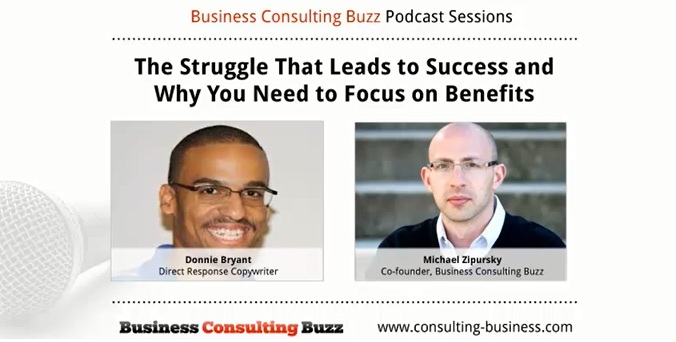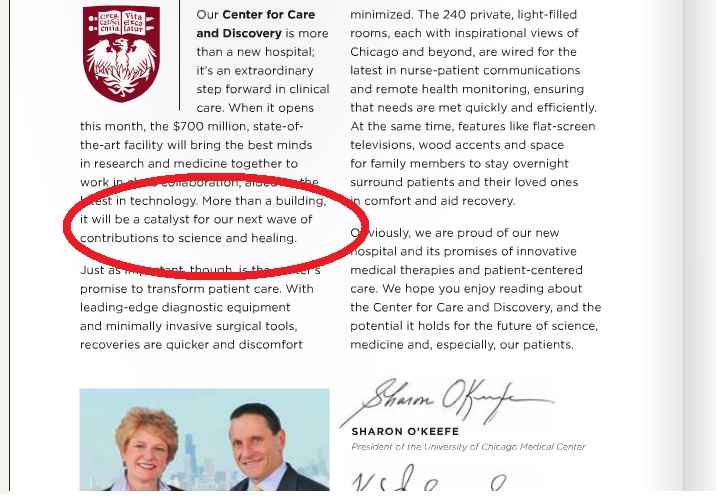Greetings, good people.
An apology before I get started.
This may turn out to be a little bit of a rant. We won’t be discussing a particular marketing concept or copywriting technique. There are a few ideas “out there” right now that I want to talk about. I still think you’ll be get some good information and insight from this conversation, but I apologize for going off-road.
Be Yourself, Doggone It
“Authenticity” is a huge buzz word these days. That’s both a good and a bad thing.
Many of the gurus and would-be teachers online now are pumping the message of authenticity. Be yourself. Speak with your authentic voice. Don’t try to be anyone else, no matter how much you admire them. Nothing wrong with being that unique individual you were created to be, right? Right!
In a copy-and-paste world, I guess that advice is necessary. When everyone seems to be winning but you, it’s tempting to start mimicking what others are doing. Besides, most of our instructors have told us at one time or another not to “reinvent the wheel,” as it were. Find something that works, and model it.
One the other hand, a 27-point list on how to be myself may be counterproductive.
Hear me on this: don’t chase authenticity. Being yourself is simple, even if it isn’t easy. Anyone who makes a big production out of this idea is sending you on a snipe hunt. That includes me. Check out this quote from American president, Woodrow Wilson.
“If you think about what you out to do for other people, your character will take care of itself. Character is a by-product, and any man who devotes himself to its cultivation in his own case will become a selfish prig.” The same is true for authenticity.
By all means, be yourself. If you’re not sure what that means, it’s time for some introspection. Write in a journal, spend some quiet time in deep thought, turn off the TV or radio and pay attention to what’s really going on inside. You’ll probably learn a lot.
We are all imposters and copycats anyway. To an astounding degree, we figure out who we are and who we’re not from the people around us. From infancy forward, we imitate our parents and role models and build our personalities on the scaffolding they set up.
Is that Awesome or What?
It wouldn’t be an exaggeration to say that I’ve seen a dozen articles, blog posts and other references to “being awesome” in the past two weeks. Gotta admit, all the chatter is starting to bother me.
What in the world does that statement even mean? It’s fairly arbitrary and generic. What is the standard for awesomeness? How do we measure it? Who’s the final judge when there’s a disagreement over levels of epicness (another word that’s hotter now than when Homer penned the Iliad)?
Here’s a thought. Don’t worry about being awesome. Now, it’s important and praiseworthy to pursue excellence in your field. But that’s more concerned with the pursuit of technical expertise or specialized knowledge. There’s a subtle difference.
I don’t think you can just write an article that says, “Be Awesome or Die.” But there is material out there right now that says exactly that. I don’t see anyone telling me “How Win the Kentucky Derby Right Now!” There’s no way you could sell that idea. On top of that, would you be frustrated if you read the article, and when you woke up the next morning, you weren’t ready to compete in the Derby? Would you wonder what’s wrong with you that you couldn’t get it to work? Do you need any extra frustration in your life?
“How to Become a Solid Marathon Runner in 8 Weeks” makes more sense. Specific, realistic, quantifiable.
My advice? Whatever you’re doing, do your best every day. And every day, try to get better. If you keep getting better, you’ll be pretty epic by the time you’re through. How awesome it that?
Altruism
According to legend, one day Pablo Picasso sat in a restaurant in Paris drinking a cup of coffee. A woman recognized him, approached him and asked him to draw sketch of her. Being the gentleman that he was, Picasso obliged. When he was finished, she took the drawing, and asked “How much do I owe you?”
“$5,000,” was Picasso’s reply.
“$5,000?!” she exclaimed. “But it only took you three minutes!”
“No,” he answered, “it took me all my life.”
What do you think Picasso would say about this romanticized notion of the starving artist? The one who creates masterpieces for the love of the craft, and would never commercialize his art. He will suffer poverty before “selling out.”
The question of art versus commerce is ridiculous. I’ve loosely labeled this idea altruism, that is, doing for or giving to others without seeking anything in return. Not looking for any benefit for yourself.
What does altruism have to do with anything? I’m glad you asked.
Honestly, not very many people are talking about being altruistic nowadays. Everyone seems to be telling you more and easier ways to become one of the rich cool kids. But I know for a fact that a lot of people feel guilty for charging what their services are worth. Or they’re scared to ask for it. Or they question whether it’s right to make people pay them to do what they love to do.
Get those thoughts out of your mind.
It is not greedy to charge what you deserve. If your plumber loves fixing pipes, should he charge you less to do it? Of course not.
Be as bold as Picasso in the anecdote above. Know the value you provide, and ask for pay commensurate with the value you bring to the table.
I’m not sure true altruism exists on planet earth. There is some degree of self-interest involved with every action. But in business, the question is a red herring. Thinking about it is nothing more than a waste of time. Stay focused on doing the best work you can do, creating as much value as possible, and earning what you’re worth for it.
Generosity is good. In most cases, I recommend being charitable on the back end. Earn as much as you can, then give as much as you can (in the words of John Wesley, founder of the Methodist church) to deserving causes.
Feet on the Ground
Wow, that really did turn into a rant. I violated my own principle of talking about one thing, but then again, the overriding topic was getting your mindset right and protecting yourself from time-draining thought processes.
We’ll get back to the regular format next time. Thanks for letting me get that out. If you have any thoughts, disagreements, or whatever, feel free to let me know. I look forward to hearing from you.
(originally published May 10, 2011)







